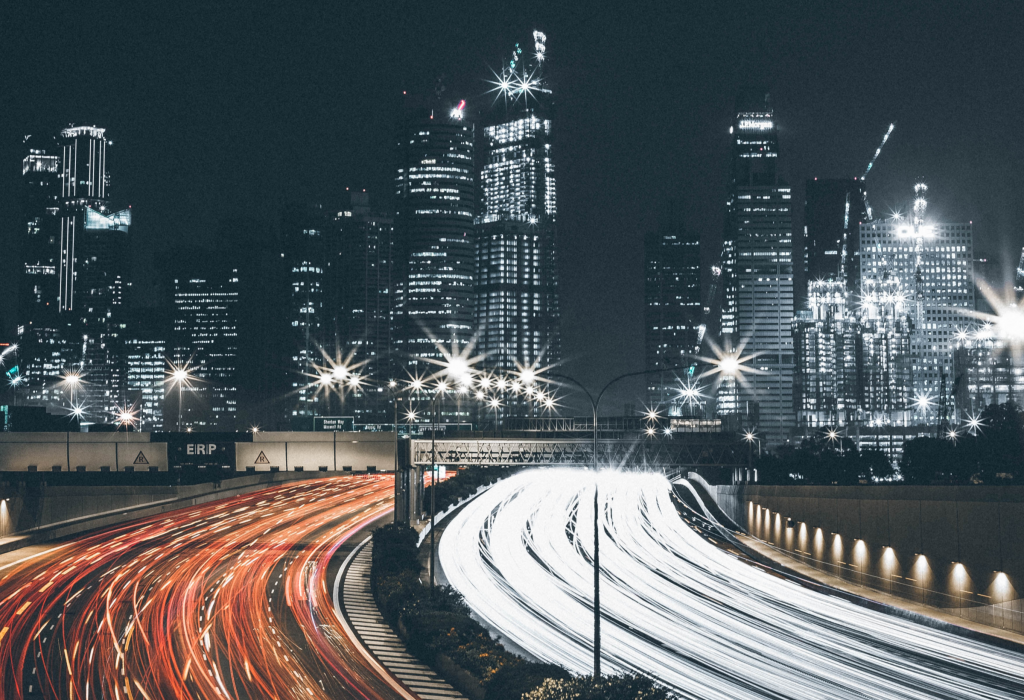Places and spaces: climate change, technological acceleration
#governance #environment #energy #resources #mobility #smartcities #Agtech

« Places and spaces: climate change, technological acceleration » is part of the six journeys of the 2018 edition of Futur.e.s: here’s what you’ll be able to discover there. Detailed program and schedule coming soon…
If we tried to define everything that is related to the idea of place and space – we would be here forever. From environment, urbanism, citizenship, mobility and governance…not to mention the relationships with economy, society and politics. Through a digital lens, Futur.e.s will explore this vast topic from two main angles: on one hand, how technological acceleration and ecology are converging, on the other, how we can digitally respond to challenges of inclusivity, new frontiers and power structures.
Faced with climate change, transitioning our environment is an urgent question: there won’t be any places in the future unless we finally acknowledge the impact of the people who inhabit them. A number of digital innovations are already tackling this undeniably collective challenge. Participative environmental sensors, new devices that simulate tsunamis or which help to minimise hurricanes, services to assist with monitoring energy consumption, recycling rare earths…all of these inventions motivate us to act, at many different scales!
There is also friction between places themselves. The country and the city. Metropolises, states, mega-corporations. Private housing and public space. Whether it’s at a macro or a human scale, the digital exacerbates existing tensions in our spaces and places. Developing infrastructure and services always has a tendency to optimise, to try and perform at a higher level, rather than include. And once again, there will only be places we want to inhabit in the future if the people who participate in their construction and management have open minds, if they fight against segregation and work towards real solidarity. From smart cities caught between security and liberty, to putting tolls on internet networks, and new ways of managing cadastres in Africa…the concepts of ’place’ and ‘digital’ constantly collide with equality of resources, wealth and people.
Futur.e.s explores these ideas by focusing on local responses, technological or economical, that serve as inspiration for new and innovative approaches. The Festival will take you on a journey of discovery to Africa and beyond, and definitely beyond the technological ‘norms’ that you already know all too well, whether Silicon Valley or Ile-de-France. Join us in exploring these new places and spaces!

HANDS ON EXPERIMENTS
- TsunamiLab by Inria Chile, an online platform combined with a hologrammatic presentation that creates an interactive visualisation and simulation of tsunamis.
- Artil presents Streetco, the first pedestrian GPS that adapts to the mobility of people with reduced mobility and disabilities.
- Blue marble presents Hurricane Unwinder. This project minimises natural disasters catastrophes by sendingdrones that project aerosol or water vapour during hurricanes.
- L’Université polytechnique des Hauts-de-France presents the features of the autonomous vehicle developed in the ANR-CoCoVeA project: interactions between driver and vehicle, modification of the level of automation and information feedback.
- Africa Key Partners is developing a platform to place contracts with African buyers with confidence via blockchain technology.
- SOLARBOX by ONIRIQ, a very low consumption solar kit that powers electronic devices for people who have limited access to power.
- Exsens, a large oval structure that permits 3D digitalisation of a person by creating their digital clone.
- The Smart Agriculture Sensor is a portable sensor that allows you to scan in seconds the organic and mineral content of an agricultural soil and recommends the fertilizer intake according to the desired crop.
- TheWhiteShop, the first entirely digital furniture marketplace, without stock or vendors, accessed by a smartphone app in virtual reality.
- AUGMENTEO Totem, a self-service augmented reality terminal that allows someone to interact with the environment via a rotating screen.
- Algopolis is a spiruline farm based on new technologies.
discussions
- Hacking territories accessibility
- Bigger – and better? Will digital allow metropolises to grow more sustainably and equitably?
- What futures for innovation in Africa?
- Pollution: a source of energy worth considering?
- How can drones help African farmers improve their yields?
- Climate fiction: is modifying our climate the only way to survive?
- Will the future be managed without States?
- Future of Cities
- Women4Climate – C40 Cities
- Rare Earth elements, polluting infrastructures: the blind spots of the digital transition
- What blockchain means for Africa
PRESENTERS
- Rebecca Enonchong, founder of AppsTech, (active in 50 countries in three continents) is one of the ten most powerful women in tech in Africa. She created the Cameroon Angels Network to help people with project ideas to develop a business plan, find finance. She cofounded the African Business Angels Network and was named a Global Leader for Tomorrow by the Davos world Forum.
- Carlo Ratti, Italian architectural engineer, director of MIT Senseable City Lab
- Narigamba Mwinsuubo, CEO of Bitland, manager of cadastres established via blockchain in Ghana (TBC)
- Alice Cabaret, founder of The Street Society, a collaborative agency of urban planning, and co-founder of SCITY, a group of researchers in neurosciences and urbanism
- Jean-Louis Missika, member of the Conseil de Paris and deputy Mayor of Paris in charge of urbanism, architecture, projects in Grand Paris, economic development and town planning.
- Camille Chardayre, Amandine Langlois, Katarina Dear, Elisa Galván-Mondié, Fanny Giansetto, Clara Duchalet, Women4Climate Paris mentees
- Alina Chanaewa, Head of the R&D department of the start-up Skytree, which captures CO2 present in the air to transform it into energy
- Philippe Dewost, Director of Leonard, the innovation and forecasting arm of VINCI
- Aawatif Hayar, chair of Casablanca IEEE Core Smart City project
- Svante Henriksson, member of the Finnish Meteorological Institute, leading a project tominimise hurricanes. Interview
- Anaïs Tondeur, artist interested in climate change, global warming, anthropocene
- Audrey Sovignet, former student at École nationale supérieure des Arts Décoratifs and programming school Simplon.co. She founded I Wheel Share in 2015 three years after the accident that made her brother Lucas paraplegic. Read her interview here.
- Jérémie Boroy, member of the diversity council of the French authority on audiovisual (CSA)
- Guillaume Pitron, journalist at Le Monde Diplomatique and GEO, film director at the Capaagency. Received the Prix 2017 for his piece in Le Monde, author of « La guerre des métaux rares – La Face cachée de la transition énergétique et numérique » published by Les Liens qui libèrent.
- Stéphan-Eloïse Gras, researcher with New York University, co-founder of Africa4Tech, founder of the Oreille Innovation Lab and South Central Academy
- Stéphane Petibon, Newmanity CEO since 2015, concerned by ethics in digital transition
- Henri Verdier, Interministerial Director for Digital and Information Systems for the French Government (DINSIC)
- Judith Rochfeld, private law associate professor at Panthéon-Sorbonne University, digital law specialist
- Paula Forteza, French MP, open data and civic tech specialist
- Agathe Courteille from Airinov, start-up subsidiary of Parrot, which deploys drones in Africa to assist with agricultural harvests.
